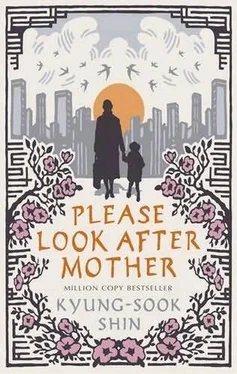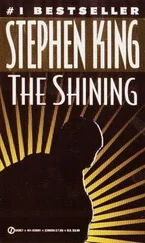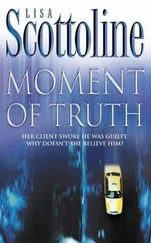Tears ran down his cheeks. Mom acted as if she would really never come home. Maybe that was why she’d said he had to eat, no matter who cooked the food. He got scared.
“Mom, I’ll do everything. I’ll work in the fields and the paddies and sweep the yard and bring the water. I’ll grind the rice and make the fire. I’ll chase the mice and I’ll kill the chicken for the ancestral rites. Just come back!”
For ancestral rites or holidays, Mom always begged Father or any other male in the house to kill a chicken for her. Mom, who went into the fields after a heavy rain and propped up fallen beanstalks all day, who practically carried Father on her back to bring him home when he was drunk, who beat the pig’s behind with a stick when it escaped from the pen to usher it back inside, couldn’t kill a chicken. When Hyong-chol caught a fish from the creek, she wouldn’t touch it until it was dead. When every student was instructed to bring in the tail of a mouse to show that everyone had captured a mouse at home on mouse-catching days, other children’s moms caught a mouse and cut off the tail and wrapped it up in paper to take to school. But Mom shrank away even from hearing about it. A woman of sturdy build, she couldn’t bring herself to catch a mouse. If she went to the shed to get some rice and encountered a mouse, she would scream and run outside. Aunt would glare disapprovingly and cluck at Mom when she rushed out of the shed, red-faced. But even though he promised he would kill chickens and chase mice, Mom didn’t say she would come home.
“I’ll become an important person,” Hyong-chol promised.
“What are you going to be?”
“A prosecutor!”
Mom’s eyes sparkled then. “If you want to be a prosecutor, you have to study hard. A lot more than you think you do. I know someone who wanted be a prosecutor and studied night and day and never made it and went crazy.”
“I’ll do it if you come home…”
Mom looked into his anxious eyes. She smiled. “Yes. You can do it. You were able to say Ma before you were a hundred days old. Even though no one taught you to read, you learned to read as soon as you went to school, and you’re ranked first in your class.” She sighed. “Why would I leave that house when you’re there-why didn’t I think of that? You’re there.”
Mom stared at his calves speckled with blood, then turned around and squatted, telling him to climb on her back. He looked at her. Mom turned her head. “Get on,” she said. “Let’s go home.”
That was how, in the late afternoon, Mom came home that day. She shoved that woman out of the kitchen and cooked. And when the woman and Father went to live in another house in town, Mom rolled up her sleeves, ran over to their house, grabbed the rice pot hanging over their hearth, and sent it rushing down the creek. It seemed as if Mom became a fighter so that she could keep the promise she had made to Hyong-chol, and return home. When Father and the woman, unable to stand Mom’s harassment, left the town altogether, Mom called Hyong-chol to her and sat him down before her, knee to knee. Calmly, she asked Hyong-chol, who was once again frightened that she might leave as well, “How much studying did you do today?” When he pulled out the test he had gotten a perfect score on, Mom’s gloomy eyes regained their fire. She looked at the test, on which his teacher had circled in red every correct answer, and grabbed him in a hug.
“Oh, my baby!”
Mom pampered him while Father was gone. She let him ride Father’s bicycle. She gave him Father’s sleeping mat and covered him with Father’s blanket. She scooped rice for him into the big rice bowl, which only Father had used. She placed the first bowl of soup in front of him. When his siblings started to eat, she would scold, “Your brother hasn’t even picked up his spoon!” When the fruit vendor came by with a rubber bin filled with grapes, she traded a half bowl of sesame seeds drying in the yard for some grapes and saved them for him, telling the other children, “This here is for your brother.” And every time she did that, Mom reminded him, “You have to become a prosecutor.”
He thought he had to become a prosecutor to keep Mom at home.
That fall, Mom harvested rice and hulled it and dried it by herself, without Father. At dawn, she went to the fields and, bent over, cut rice stalks with her scythe, stripped the grain, and spread it on the ground in the sun to dry. She came home when it got dark. When Hyong-chol tried to help, Mom said, “You go study,” and pushed him toward his desk. On warm Sundays after all the rice was harvested, Mom would take his siblings to the field in the hills to dig for sweet potatoes, but she would nudge him toward his desk. They would come back near dusk pushing a wheelbarrow filled with russet sweet potatoes. His brother, who had wanted to stay home to study but had been forced to go with Mom, hunched over the well, scrubbing the dirt from under his fingernails.
“Mom! Is Hyong-chol that important?”
“Yes! He’s that important!” Mom rapped his brother on the head without giving the question a second thought.
“Then you don’t need us?” His brother’s cheeks were flushed from the crisp air.
“No! I don’t need you.”
“Then we’re going to go live with Father!”
“What?” Mom was about to give his brother another rap on the head but stopped. “You’re important, too. You are all important! Come here, my important children!” Everyone laughed. Sitting in the glow of the room in front of his desk, listening to his family at the well outside, Hyong-chol smiled, too.
It’s not clear exactly when, but Mom stopped locking the gate at night. Soon after, when she scooped rice for everyone in the morning, she started to put some in Father’s rice bowl and leave it under a blanket in the warmest part of the room. Hyong-chol studied even harder while Father was gone. Mom continued to refuse to let him help in the fields. Even when she was yelling at her other children that they had left the peppers spread out in the yard in the rain, she lowered her voice if she thought he was studying. In those days, Mom’s face was always crumpled with fatigue and worry, but when he studied by reading out loud, the flesh around her eyes became brighter, as if she had dabbed on powder. Mom opened and closed the door to his room quietly. She silently slid a plate of boiled sweet potatoes or persimmons into the room, then gently closed the door. One winter night when the snow drifted onto the porch, Father walked in the open gate, cleared his throat, took his shoes and smacked them against the wall to get the snow off, and opened the door. It was so cold that everyone was sleeping together. Through half-open eyes, Hyong-chol watched Father touch everyone’s head and gaze down at them all. He saw Mom placing on the table the rice bowl she’d kept in the warmest part of the room, saw her bringing sheets of seaweed toasted with perilla oil and putting them next to the rice bowl, and watched as she placed a bowl of rice-boiled water next to the rice bowl without a word-as if Father had left that morning and had come back at night, instead of having left in the summer and returned sheepishly in the bitter cold of winter.
When Hyong-chol graduated from college and passed the entrance exam for the company he works at now, Mom wasn’t happy. She didn’t even smile when the neighbors congratulated her on Hyong-chol’s employment at a top corporation. When he came home with the traditional gift of underwear bought with his first paycheck, she barely looked at it, and coldly shot at him, “What about what you were going to be?”
He replied simply that he would work hard at the company, save for two years, and start studying again.

Now he reflects on this. When she was younger, Mom was a presence that got him to continue building his resolve as a man, as a human being.
Читать дальше












